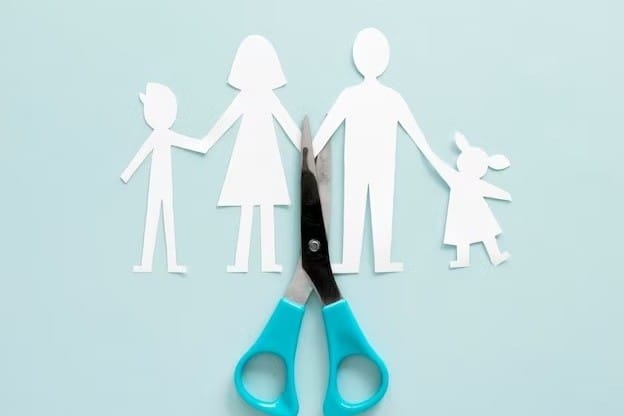
posted 15th August 2023
The Ripple Effect: How Divorce Affects Children
Divorce is a life-altering event that impacts not only the lives of the spouses involved but also their children. While divorce might be the best solution for the parents, its effects on children can be profound and long-lasting. In this blog, we'll explore the emotional, psychological and social ramifications of divorce on children, shedding light on the challenges they face and ways to mitigate the impact.
Emotional Impact
*Stress and Anxiety
Divorce often leads to an upheaval of the familiar routine and stability in a child's life. The uncertainty about the future and changes in their living arrangements can trigger stress and anxiety.
*Fear of Abandonment
Children might develop a fear of being abandoned or rejected, leading to attachment issues and difficulty forming trusting relationships later in life.
*Grief and Loss
Divorce brings a sense of loss for the intact family unit, leading children to grieve the separation of their parents and their dreams of a united family.
Psychological Effects
*Self-esteem Issues
Children may blame themselves for their parents' divorce, leading to lowered self-esteem and feelings of guilt.
*Emotional Regulation Challenges
Difficulty in coping with complex emotions can lead to behavioural issues, mood swings and depression.
*Academic Performance
Divorce-related stress can impact a child's ability to concentrate on studies, potentially affecting their academic performance.
Social Ramifications
*Peer Relationships
Children might have trouble forming and maintaining friendships due to their emotional struggles, which could lead to feelings of isolation.
*Relationship Models
The parents' separation can influence a child's perception of relationships, potentially affecting their own future relationships and marriages.
*Divided Loyalties
Children might feel pressured to choose sides between parents, causing inner conflict and distress.
Mitigating the Impact
*Open Communication
Encourage open conversations about the divorce, ensuring that children feel comfortable expressing their feelings and concerns.
*Stability and Routine
Maintain a consistent routine and stable environment as much as possible to provide a sense of security.
*Cooperative Co-parenting
Cooperation between parents, even post-divorce, can provide a supportive environment for the child.
*Professional Support
Therapists or counsellors can help children navigate their emotions and provide tools to cope with the changes.
*Minimize Conflict
Keep conflicts away from the child and avoid putting them in the middle of disagreements.
Conclusion
Divorce undoubtedly has a profound impact on children, affecting their emotional, psychological and social well-being.
While the effects can be challenging, proactive efforts from parents, along with professional support, can help children navigate the turbulent waters of divorce. By prioritizing their needs and emotions, parents can lessen the negative impact and create a foundation for their children's resilience and growth in the face of adversity.


